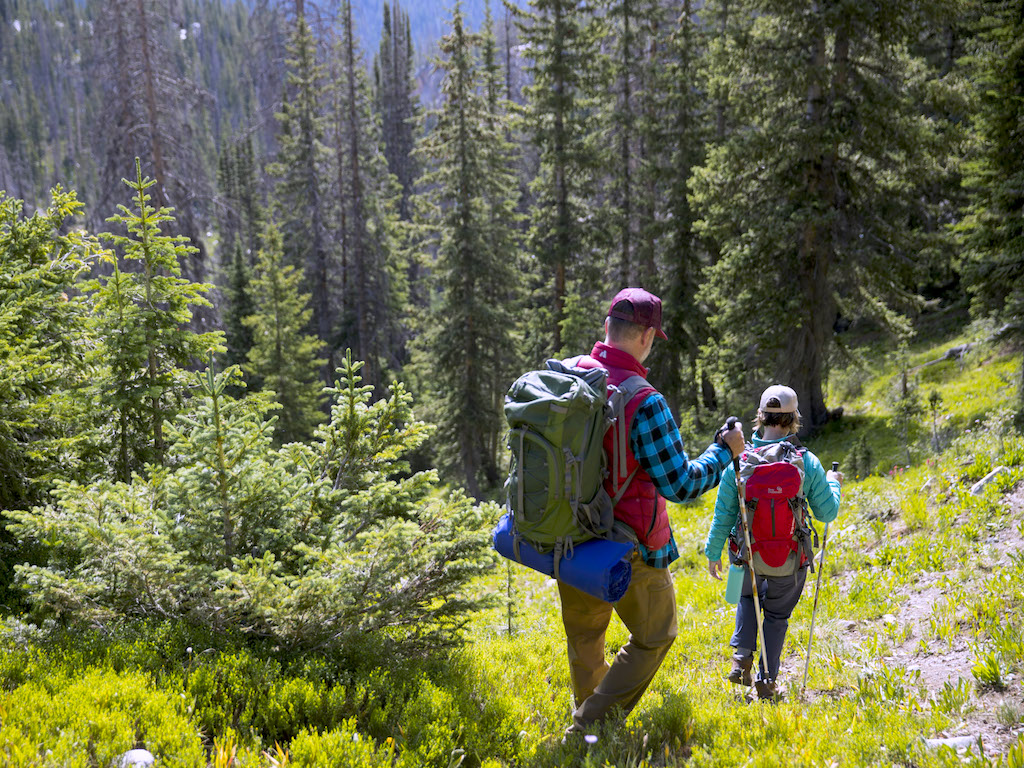8 Mins Read
We are travelling more than we have ever before, especially right here in Asia. According to a 2019 World Travel Monitor report, outbound travel from Asia rose by 6% since the beginning of the year, making the region the largest growth driver in the world tourism industry. While travelling can be wonderful for many reasons – to discover and learn about different cultures and connect with people – the way we are travelling today often leaves a mostly negative impact. From damaging local economies and communities, hurting animals and devastating natural ecosystems and contributing to carbon emissions, we must start thinking seriously about the kinds of travel choices we are making. So what can we do to become more responsible travellers?
Green Queen founder Sonalie Figueiras was recently a panelist at a talk on responsible tourism at the Hong Kong Foreign Correspondents’ Club (HKFCC) alongside wildlife photographer and children’s book author Jan Latta as well as Impact Travel Alliance coordinator Vincie Ho. During the event, a great many ways to minimise our travel impact or even make a positive impact on local communities and wildlife were discussed.
Below we roundup of some of the key steps we learned about when it comes to being a responsible eco-minded world traveler.
1) Choose Responsible Accommodation

With the consumer market becoming more and more eco-conscious, businesses in the hospitality industry, from boutique hotels to giant international luxury chains are responding by offering greener accommodation options. In addition to big names such as Marriott, Mandarin Oriental, InterContinental, Six Senses and Ovolo all taking plastic-free pledges, travellers should try to opt for independent properties that go even further. We’ve seen more locally run and managed hotels and resorts operating with sustainability at its core, such as all-vegan and waste-free resort PlantLife, which is set to open in Thailand.
During their stay, travellers ought to take individual initiatives to reduce resource consumption. As Figueiras shared, we need to “redefine luxury so we can pamper ourselves without hurting the planet,” through opting to go without changing towels and bedsheets every night in hotels. Taking the extra mile, Latta recommends choosing camping, the ultimate low-impact accommodation choice!
2) Opt For Green, Cruelty-Free & Ethical Tour Operators
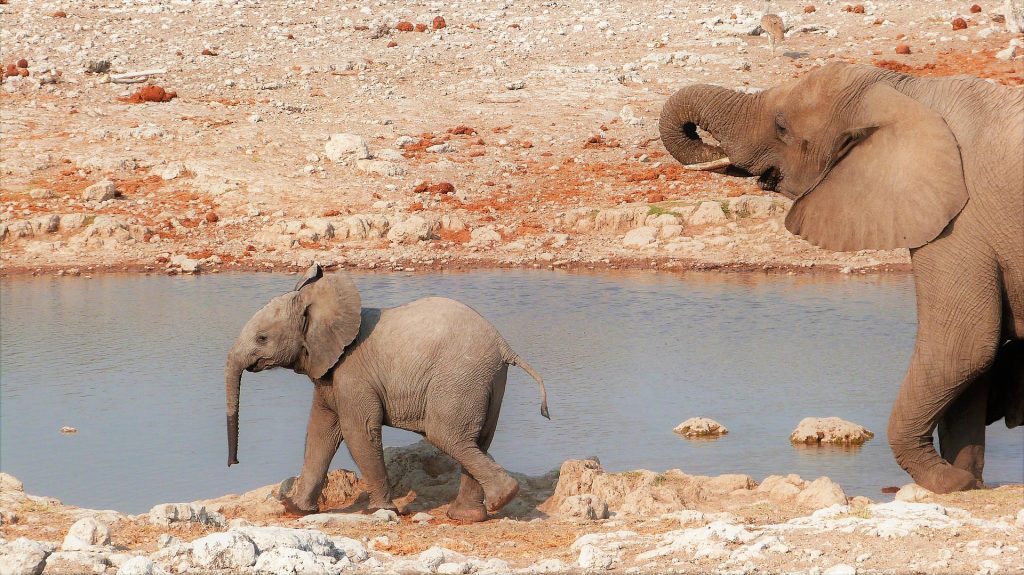
While it can be more time-consuming to plan ahead and vet responsible and ethical tour operators for your exploration activities, it is important to do so to ensure that your travels do not cause harm to animals, the planet and local communities. Especially when it comes to activities involving animals, our decisions matter. For instance, elephant riding subjects beautiful creatures to undeserved suffering for entertainment and should be avoided at all costs.
While animal activities have had a bad rap in recent years, it is still important to note that they can leave a positive impact in some cases and support conservation efforts. Latta has experienced animal tours that are cruelty-free can actually be beneficial to help restore wildlife and conserve dwindling populations of species, not to mention help support the local community – so it is important to opt for those.
But because businesses can simply make eco and ethical claims, we need to be vigilant and to make sure they are “genuinely serious about it,” underlines Ho. One of the ways we can educate ourselves on these choices is vetting online. Recently, Airbnb partnered up with World Animal Protection (WAP) to launch an Animal Experiences category that has filtered out all tours and activities that are affiliated with or do not comply with WAP animal welfare regulations.
You can also pay attention to other behaviour by a tour operator to assess their ethics and environmental commitment.“If you spot a tour operator that uses a lot of single-use plastics or is advertising tiger petting, these are red flags that show the lack of commitment that businesses have. Use these as proxies to gauge if there is a real feel for environmental and social concern,” says Figueiras.
3) Fly Less & Avoid Planes Whenever Possible
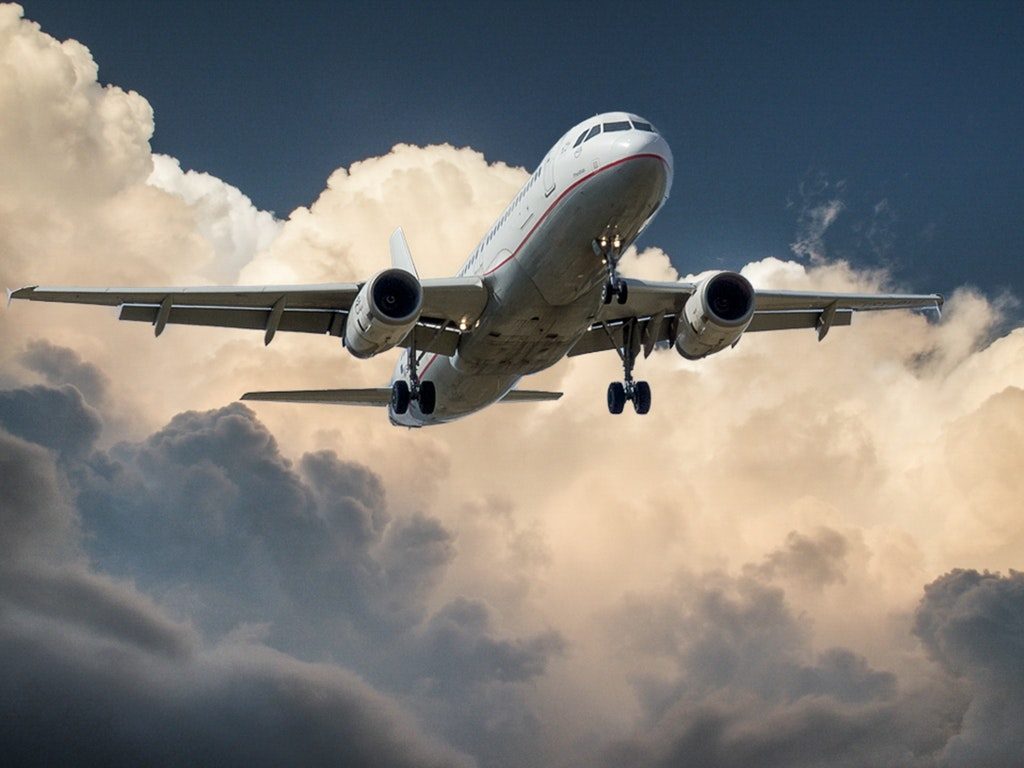
As most of us already know, travelling by air produces huge amounts of carbon emissions. The global aviation industry, which carried over 4 billion passengers last year, is accountable for 2.5% of the world’s carbon emissions each year. In the midst of our climate crisis, we must evaluate every single decision for its carbon impact and keep a check on the continually growing number of flights we’re taking. So one of the best choices we can make is to fly less (and avoid flygskam) and opt for buses and trains whenever possible. It’s a bonus too for your travel experience – we often miss out on some of the most beautiful landscapes when we travel by air.
4) If You Must Fly, Pack Light & Choose Direct
If you must travel, which for many of us is unavoidable to get to certain parts of the world, we should “fly direct and fly light,” according to Ho. This is because a part of our carbon impact is affected by the weight that the plane has to carry – so with a heavier suitcase, comes a heavier carbon tag. If you have the means and choice to fly direct, it’s the better option because when take-off and landing are hugely costly in fuel emissions terms so you want to minimise those in your itinerary. Within a country, see if you can replace flying with trains or buses – why take a short flight with all the hassle when you could enjoy scenery on a relaxing train ride?
5) Offset Your Carbon Footprint
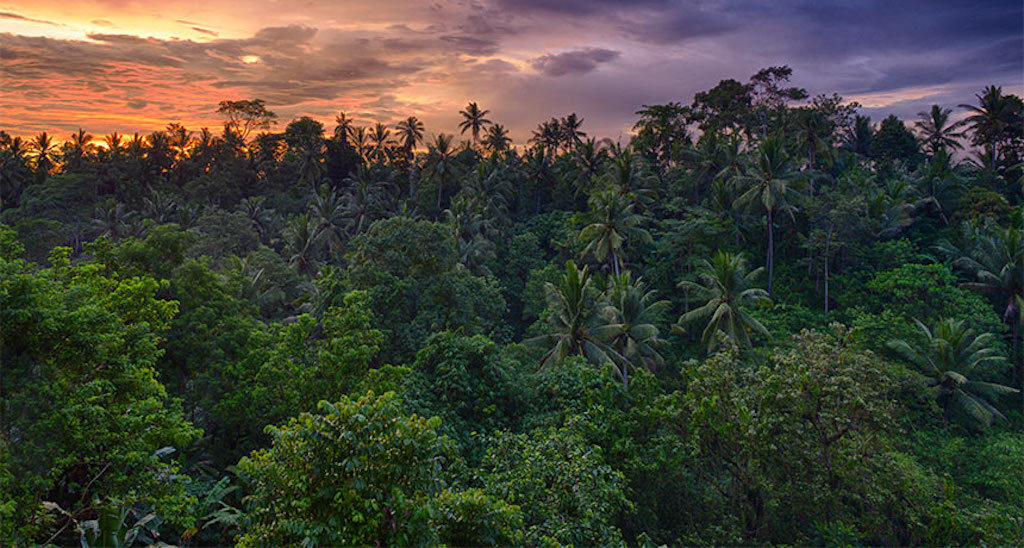
Another measure that Ho recommends is offsetting your flight’s carbon footprint through tree-planting projects, but even with this practice, we must make sure that organisations that are accountable. “Choose reputable organisations that work with local projects, those that are audited by third parties and have transparent progress reports so you know where your funds are going,” she said.
One of the United Nations-backed services available is Chooose, which is a climate action streaming organisation enabling individuals to fund reliable and approved offsetting projects.
You can get a rough estimate of your air travel footprint through Shame Plane, an independent Swedish carbon calculation site that is created without funding from any company and is based on scientific journal published data. The site goes one step further, offering a number of actions that you can take in your everyday life, such as recycling, cutting food waste and going vegan, as ways to neutralise your emissions.
6) Travel Plastic-Free

Plastic leaves a huge environmental footprint. It is petroleum-based, a non-renewable energy source that contaminates rivers, topsoil and waterways with sludge in the manufacturing process, and pollutes the air with greenhouse gases that fuel our climate crisis. And because plastic is not fully recyclable, even “recyclable” plastics will eventually be downcycled until it turns into an item of waste that leaves a dent in our oceans, rivers, rainwater and food. Therefore, travelling plastic-free is a key step to reduce your impact, whether it is refusing the plastic bottle or making sure you’re packing all your amenities with you.
7) Eat Plant-Based & Local

Eat locally grown vegan food whenever possible on your next trip! Scientists have repeatedly pointed to the need for dietary changes – cutting down meat and dairy – to combat climate change. The animal agriculture industry is responsible for more emissions than all global transportation combined. It causes topsoil erosion, water pollution, is a leading cause of deforestation – yet produces only 18% of the world’s food calories. This means that saying no to meat and dairy is one of the most powerful individual actions you can take to uphold your commitment to be a responsible traveller. In addition, eating locally not only means less food transportation emissions, but would additionally benefit the community and their economy.
8) Put Your Home To Sleep While You’re Away

One way to save resources and energy is to put your home “to sleep” while you are travelling. Plan accordingly so you don’t leave behind food waste, and make sure that all devices and plugs aren’t left on standby. This will ensure that your home does not consume so-called phantom energy (or “vampire electricity”) that gets drawn from outlets by the devices that are supposed to be off.
9) Connect With Local NGOs & Volunteer
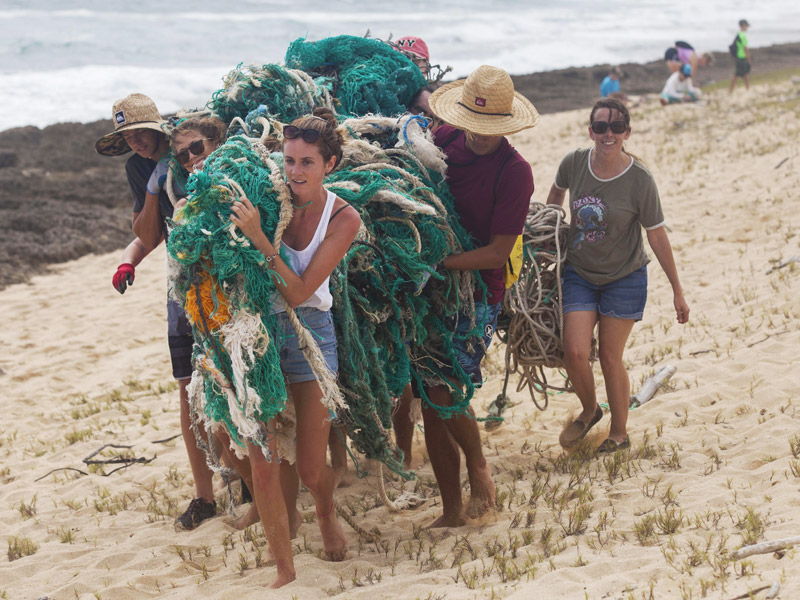
One of the most nourishing and educative parts of travelling is to learn about new and different cultures and people, and volunteering through activities with local non-profit organisations are a great way to do so. It allows for a real grassroots experience of the challenges that communities face, and how you can make a small difference.
For Figueiras, sustainable tourism is not only just about neutralising your impact, but “ideally, going towards leaving something positive behind and creating good as a traveller.”
Latta spoke about the life-changing possibilities when it comes to visiting local organisations and getting to know the animals. “When I went to Nairobi, I discovered a small elephant orphanage and one baby elephant was called Latta. I’ve since adopted her by supporting the orphanage, and she now lives in the wildlife and has two babies of her own,” Latta shared.
There is a self-enriching aspect to getting to know people and sharing experiences together while on your travels. “It is a transformative thing, for them and you. It’s beautiful to have connections with locals you meet on the road who are seemingly so different, yet you can still find similarities with,” remarked Ho.
10) Say NO To Cruises
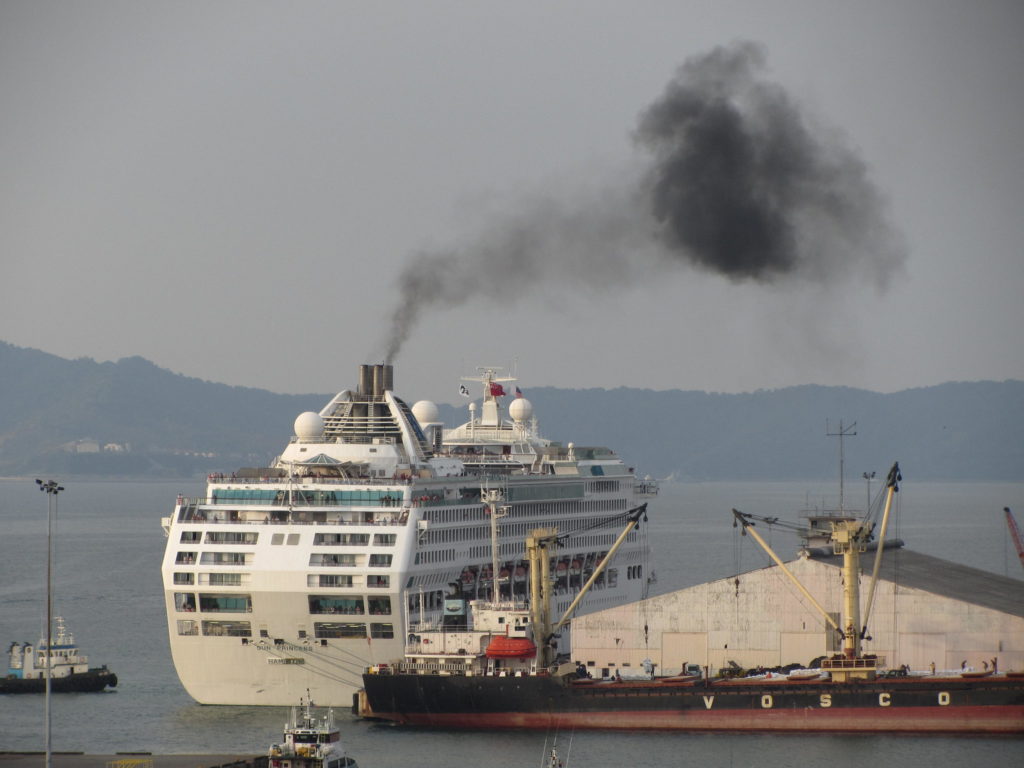
In the past couple of decades, cruise holidays have become one of the most popular vacation choices for holidaymakers. As any eco warrior will tell you, refusing to ‘set sail’ would be the responsible thing to do. In case you haven’t heard, cruising is bad for the environment, people and marine life. In addition to being massively polluting due to diesel fuel use and copious food waste, they are often damaging to local communities as tourism money tends to stay on the ship– locals don’t see the financial benefits.
Lead image courtesy of Bermanzi.


